interview by Michael McCarthy
When Sam Levin’s album Frame of Mind was sent to me by his publicist it was recommended if you like The Head and the Heart, Kings of Leon, The Lumineers, Imagine Dragons, Bon Iver, Bahamas and Jose Gonzales. Naturally, with an impressive list like that, I had to give it a listen. I didn’t even read the bio at first, I just downloaded it and put it on. I was immediately impressed with his songwriting, which featured a multitude of colorful instruments that were blended together perfectly, creating a rainbow of sound. To my ears, he reminded me of The Bens. You know, Ben Lee, Ben Folds and Ben Kweller. Each are offbeat and rather unique and yet they have a broad enough appeal at the same time. By the time Sam’s album was over, I’d made up my mind that I wanted to interview him. Then I went back and read his bio and was shocked to learn that he is only 15. Granted, he looks young on his album cover, but I still would have guessed that he was at least 20, if only because his music has a certain degree of maturity that I wouldn’t expect to come from someone so young. As I read on, I learned that Sam wrote his first song when he was just seven years old. And in addition to his fantastic solo music, he also plays in a jazz band. I don’t know if these things qualify him as a prodigy or not, but they certainly impressed me. Give his album a listen below as you read this interview and I have a feeling you’ll be impressed, too.
MM: First of all, it was only when I looked at your Bandcamp page that I read that you’re from New York, New York. Everywhere else, including your Facebook page, you leave it off. Are you trying to be mysterious?
SL: I don’t think so. I just think maybe that slipped past.
MM: I read that you asked for a Fender Mini Strat when you were just five years old. Were you joking or were you already playing instruments at that age?
SL: I had been taking piano lessons, as kids take piano lessons, I guess. But that was the first time I had an I-actually-want-to-make-music moment in my life.
MM: So, what instruments do you play besides guitar? I understand you play quite a few.
SL: Mostly piano, drums, bass, and I do a lot of programming, too.
MM: When you write songs do you usually start with the music or the lyrics first?
SL: Actually, it’s almost entirely the music first. The lyrics are normally much later because I feel like lyrics, you really have to think about them a lot more because that’s what people are gonna remember.
MM: I understand you wrote your first song when you were seven. Was it an actual verse chorus verse type of song or something abstract?
SL: No, it was pretty generic. It was C, G, A minor, F, all really standard chords. Really basic verse, chorus, verse, chorus, bridge, chorus.
MM: What was it called?
SL: It was called “I Sure Hope Not.
MM: After you wrote that song when you were seven, did you continue writing songs from that point on or did you stop until you got older?
SL: I stopped for a little bit. It wasn’t too long. It was maybe almost a year before I decided I’d try it again and I wrote another song. I wasn’t deliberately waiting. It was just by the time I got back to it.
MM: Prior to Frame of Mind you released a few singles and an EP. How old were you when you released your first single?
SL: First single was ten then second single at eleven then the EP was at 12. And then I just released a single from the album earlier last year.
MM: When did Frame of Mind come out?
SL: Frame of Mind came out this year. March 28th.
MM: How’s it been doing?
SL: It’s been really great. I don’t really expect much. I just kind of wanted to get it out there. But so far it’s been really amazing.
MM: Are you looking to get a record deal for it or are you just glad to have it self-released for now?
SL: Yeah, it’s good to have it self-released. I’ve been trying to send it out, like try to just get it out more but I think I’m not really looking for a record deal more than just for it to be heard more.
MM: I know there are some female backing vocals on Frame of Mind, but is all of the music we hear all you?
SL: A good amount of it is. I had someone help me with the drums on “Set Up” and, of course, there’s a chorus on “Ride” and, yeah, the back up singers you were talking about.
MM: Did you produce the album yourself, too?
SL: Yeah.
MM: What kind of software do you use to produce?
SL: I use Ableton Live Nine.
MM: Do you use any samples or loops for the beats or do you do it all with live percussion instruments?
SL: No, everything on there was actually played.
MM: Did you mix and master the album yourself, too?
SL: Mostly. My Dad helped me out.
MM: Did you design the album cover?
SL: Yeah. That was fun.
MM: You’ve said that Frame of Mind is about what happened to you during the past year, which isn’t necessarily a good thing or a bad thing. What were some of the main events in your life that inspired it?
SL: Well, I started high school, which is just the classic. Writing music as well was getting harder. You know, realizing that a bunch of people have written songs, it’s hard to sound original. A lot of like realizations and, you know, going into high school. A lot of that. It was mostly like thoughts that turned into songs. There wasn’t a lot of physical things that turned into songs.
MM: Now you also make electronic music, which I was really impressed with. What do you use for making that?
SL: That’s also Ableton except for the album I was doing a lot of recording into Ableton, whereas with the electronic stuff most of the time I’ll just sit down at my computer for an hour or two.
MM: I also understand you’re in a school band and a jazz band – or are they one in the same?
SL: Oh, yeah, those are the same.
MM: What do you do in the band?
SL: I play guitar in the jazz band. Which has been cool because I’ve been playing jazz for a while. Since I was like eight. And it’s cool to be challenged by that because I’ve been playing a lot of really basic jazz songs.
MM: Do you do covers or do you do original material?
SL: We do mostly covers. Not really jazz standards but some pretty popular jazz songs.
MM: What are some of the ones you do?
SL: Well, right now we just finished working on some Chick Corea, “You’re Everything.” But right now our big project is we’re gonna try to play the entirety of Aja by Steely Dan.
MM: As far as your original material goes, do you think you’ll always be a solo artist or could you see yourself ever starting a band?
SL: I kind of like the whole solo thing. It’s nice to kind of have people help you, but I feel like if you start a band [it’s like how] people always say getting married is a huge commitment. You’re with that person forever. And I feel like a band is kind of like that. You’re writing the same music. And writing music is a really intimate process. So, I feel like if I’m constantly doing it with a bunch of other people it might be a little hard.
MM: I like how the metronome is used as an instrument in your song of the same name. How did you come up with that idea?
SL: When you start a new song, most of the time I’ll just hit the metronome because there’s no other way to really hear what tempo you have set up. I kind of had forgotten to take it off and when the time came around to finish the song I realized that I wanted it to be in. But there’s also no way to get that metronome sound. I came up with a cool drum hit and I put in that as a generic metronome sound. And then as the song progresses, I thought it would be cool if there were certain breaks where the metronome kind of changes rhythm. Maybe triple it and some cool stuff.
MM: “Tru Mo” has someone instructing kids on how to play music. Did you write that whole spoken word part or is that something that you found?
SL: I made all the music. Those are really old samples. I just thought it was really cool. I don’t know if it has the same effect on people but it’s kind of inspiring in a weird way. At the end of the song the guy’s saying like you can make whatever you want. Once you figure out how to do certain things then you just go and you play then the album ends. I thought that was really cool, kind of like encouragement to, you know, make your own music.
MM: I really like that track. Did you get permission to sample it? Or is it just something so old you figured nobody would care?
SL: Oh, yeah, we got permission for that.
MM: Is that a triangle I hear chiming in “Everything’s OK”?
SL: Yeah. I didn’t want to make it too loud. It kind of blended pretty well.
MM: I think that’s one of the first times I ever heard a triangle used in an actual song.
SL: It’s a tough instrument to put in there.
MM: On “Ride” you sing about having singalongs with family and friends. How often does that happen?
SL: That song is true. I was also mocking other songs about [how] everything’s fantastic and everything’s great. And there’s a line in there about how it’s OK if I don’t see you again because I’ll eventually see you when we’re all together again. So, it’s all kind of ironic in a way.
MM: You also sing about how thinking too much can lead you on a downward spiral on that one. Do you find that you’re prone to that type of thinking?
SL: Yeah. I said how the songs are more like thoughts than physical things. Most songs come from thinking about something then that would turn into something else and eventually I can’t stop thinking about a certain thing so writing a song about it was really helpful.
MM: Which song on the album would you say finds you at your most vulnerable?
SL: I think the title track, probably. You can probably hear it. Near the end I go pretty high. I normally don’t sing very high, but that song is sort of all about growing up. Not growing up like going from a small child to a larger child. Growing up as in going from a teenager to an adult.
MM: I read that aside from songwriting you like to write stories. Are we talking about short stories or have you ever worked on a novel or anything?
SL: I’m the type of person who will come up with a really cool idea and I’ll sit down and I’ll start writing it and then the idea will kind of fade. The excitement that I’ll have. I have so many first five pages of a lot of stories.
MM: I read that you’ve done a lot of coffee house tours and open mic nights. Are you headlining any shows or are you opening for other people?
SL: That would be great. I’d love to open for someone. But, as of now, I just try to find gigs. If I get them I’ll post about them or tell people about them, but as of now I have nothing really big because I’m in school.
MM: Do you think you’ll do any touring around your area or anything during the summer?
SL: Um, that would be really cool. That’s actually a great idea.
MM: Do you generally prefer writing and creating music or performing live?
SL: I think writing and creating is definitely – I’m not gonna say more fun, but I have so many tools when I’m just sitting there and I can make mistakes and experiment with different instruments, whereas if you’re playing it live you’ve rehearsed it and you have specifically what you want to do so there isn’t as much freedom.
MM: I know you do some covers at your live performances. Who do you cover and which songs?
SL: One of my favorites is Bill Withers’ “Ain’t No Sunshine.” I came up with a really cool solo guitar version of that song. I also try to play LCD Soundsystem as much as I can. That’s a big inspiration.
MM: Yeah, I like them. What do you do by them?
SL: Lately, mostly “All My Friends.” I try to do “Home” and my big goal is to play “”Dance Yrself Clean.” I’m still figuring out how to do that.
MM: That’s a tough one. How popular would you ideally like to be? Would you like to be a household name or would you rather have more of a cult following?
SL: I use Spotify a lot and when you go to artists it tells you how many listens they have and I feel like at a certain point it becomes like a really big thing and less like a small treasure kind of artist. Not very big. I’d just kind of like to be known. Not known but kind of known.
MM: How many monthly listens would you like to get?
SL: I don’t know. Right now I have 200 monthly listeners. Really, really cool. I was not expecting to have that many. But, yeah, definitely the more the better. Maybe like 2000.
MM: I know you like listening to music on vinyl. What do you think about the vinyl comeback?
SL: I think it’s really interesting, considering it’s like definitely one of the biggest, physically, ways of listening to music. It’s also expensive, too. But I think it’s really cool that it’s coming back. I’m not entirely sure how it happened.
MM: I think it was gradual.
SL: Also, these days a lot of people are only releasing singles or small EPs and I think it’s cool how whole albums are meant to be listened to. If you buy an album on vinyl then you’re gonna play the entire thing.
MM: So, do you buy new releases on vinyl or do you mostly collect old records?
SL: Well, my Dad has boxes and boxes of old records. I think it’s really cool to support new artists by buying vinyl. I just bought Courtney Barnett’s album on vinyl. That was pretty cool.
MM: The one thing I don’t like about the vinyl comeback is how the prices have gone up as it’s gotten more popular. Especially when they put albums out on 180 gram vinyl and charge 40 bucks for one album.
SL: Yeah. It’s definitely even crazier because nowadays a lot of people just pay fifteen dollars a month and they can listen to whatever songs they want.
MM: It’s funny how at the same time vinyl has come back you have this huge streaming industry now. What do you think of streaming services? Are you generally a fan of them?
SL: Well, I can’t say no. I use Spotify a lot. But at the same time musicians are making a lot less money off of them. But from my point of view, I’m not really in it for money. I just think it’s cool to get music out there. A lot of people are discovering new artists. But at the same time if people are really all about money then it’s definitely not the best.
RANDOM QUESTIONS:
MM: What was the first album you ever bought with your own money?
SL: Probably Gorrilaz’s Plastic Beach on vinyl.
MM: What do you think of their new album?
SL: I kind of just started listening to it. I don’t know enough to say. Definitely, I think the singles they released are probably my least favorite songs on the album.
MM: I’m still trying to wrap my head around it. I’ve only listened to it a few times myself. I think where it’s such a long album you really have to listen to it more than a few times to get into it.
SL: Yeah.
MM: Name three artists from your parents’ record collection who you actually like.
SL: Well, growing up there was a lot of Steve Miller. Like classic Steve Miller. Traffic. Jackson Browne.
MM: What have you been listening to lately?
SL: Well, this is gonna be my fifth time talking about Spotify, but every Monday they send me thirty songs with Discover Weekly so that’s how I find most of my artists. But where the new Gorillaz album just came out I’ve been listening to a lot of old Gorillaz albums to get back into it. A lot of Phoenix, I’ve been getting into. And also, for fun, a lot of Tom Waits.
MM: If someone was giving you a million dollars to give to charity and it all had to go to one charity or cause, which would you give it to?
SL: Maybe the ASPCA.
MM: That’s one of the animal rights ones, right?
SL: Yeah.
MM: If you could have one artist cover one of your songs, who would you like to cover you and what song would you like them to do?
SL: I would say I would really like to see – do you know Car Seat Headrest?
MM: Yeah.
SL: I’d like to see them do “Everything’s OK.”
MM: What’s the first concert you attended?
SL: Oh, man, there’s been a lot of concerts. Maybe JJ Grey & Mofro.
MM: Who else have you seen?
SL: Well, I recently saw Bon Iver. And I just saw James Blake at Radio City Music Hall, that was pretty great. And I just bought tickets to see Marcy Playground a couple months from now.
MM: Tell us three things from your bucket list you have yet to do?
SL: I’d love to go skydiving. I’d like to be in a hot air balloon. I’m a heights guy.
MM: Have you ever been to the Eiffel Tower?
SL: No.
MM: That would blow your mind then. It’s so much bigger in real life than it always looks in photos and stuff. Are there any foreign countries you’d like to visit?
SL: I went to London. I did an open mic tour in London. That was fantastic. I love it there.
MM: Were you well-received there?
SL: Yeah, definitely. Their open mic crowd is a lot better, I think, than ours. They’re actually really interested in listening. At every show they would ask me how old I was so that they could hate me. But, yeah, they definitely are a lot more interested.
MM: What’s your biggest pet peeve?
SL: Probably people who think big pop stars are musical geniuses.
MM: If you could resurrect one musician from the dead, who would you bring back?
SL: Jaco Pastorius. He played jazz. He’s a bass player. He’s also on Hejira by Joni Mitchell.
MM: One last one. What’s the most useful piece of advice you’ve ever been given and who gave it to you?
SL: Does it have to be directly given to me?
MM: It can be in a roundabout way.
SL: Bill Withers has a song where he says “it doesn’t matter how you do it, but do it good.”
Special thanks to Sam for taking the time to do this interview and to David Levin and James from I.M.P for setting it up!



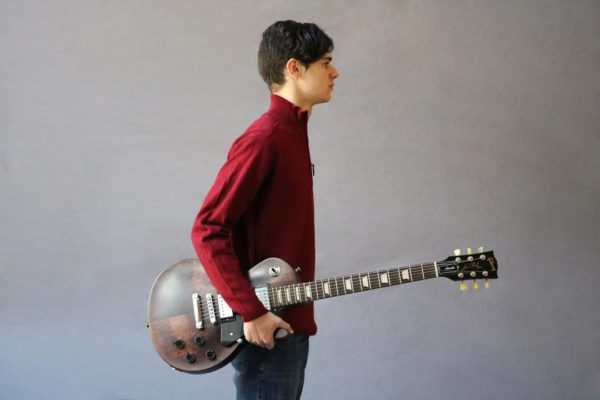
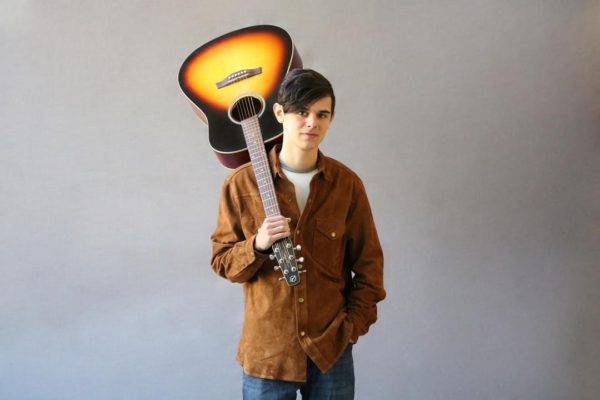

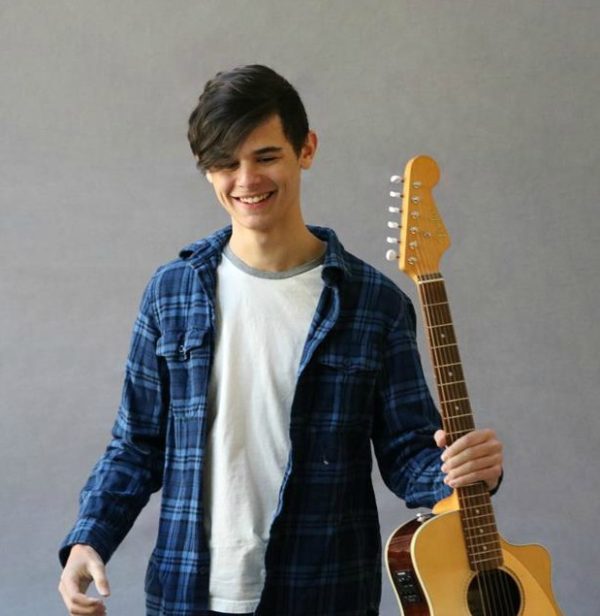

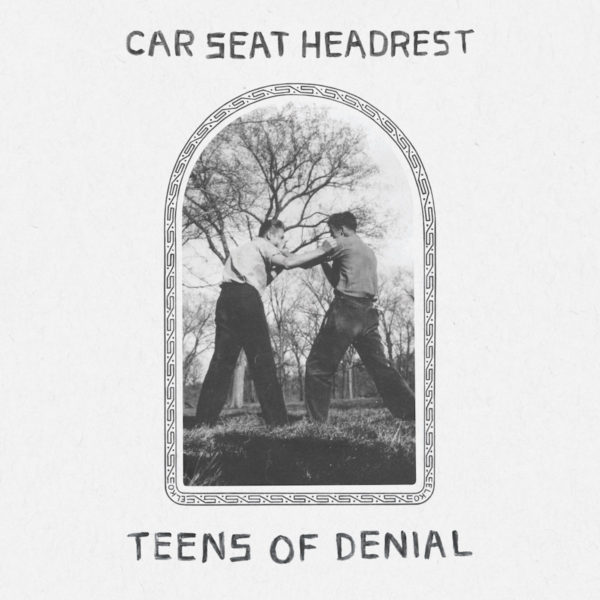
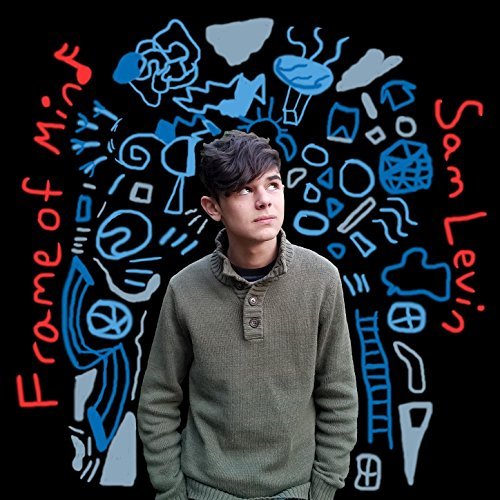
Leave a Reply